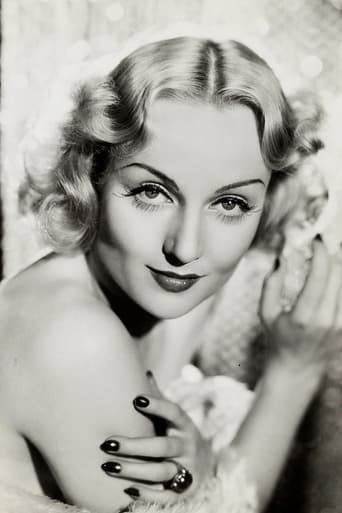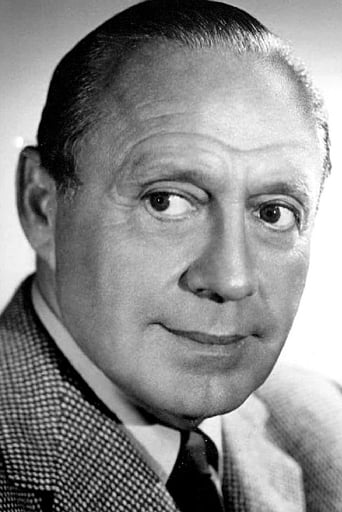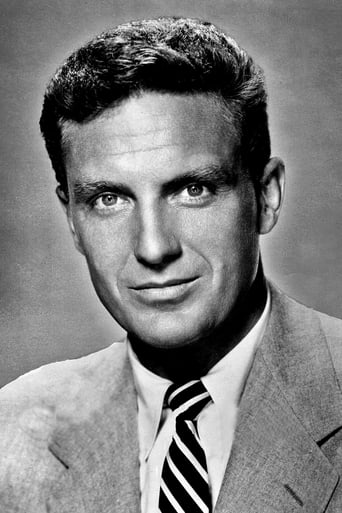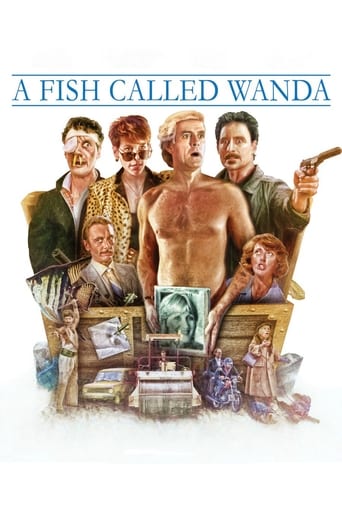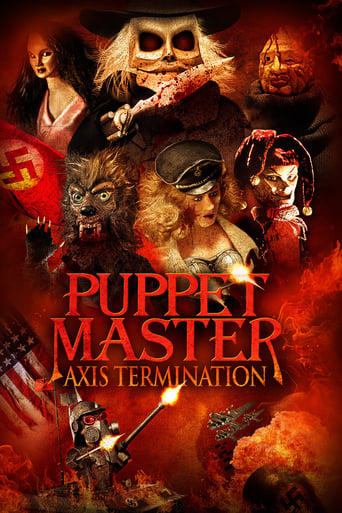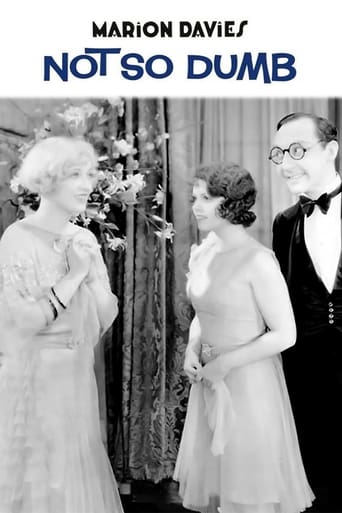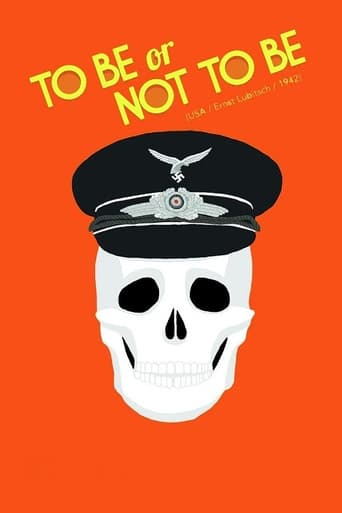
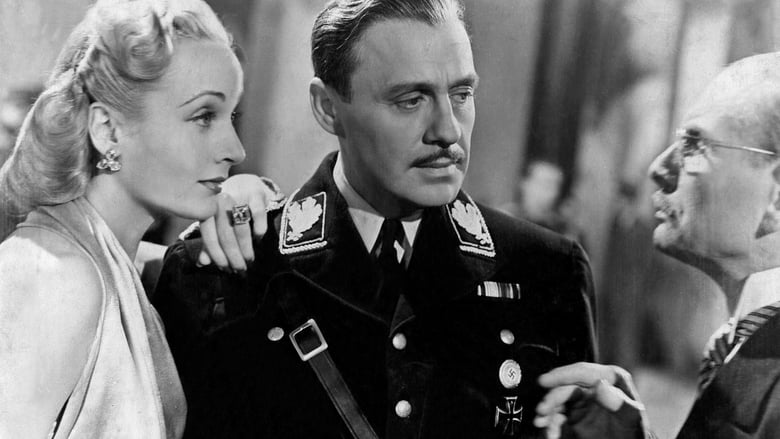
To Be or Not to Be (1942)
During the Nazi occupation of Poland, an acting troupe becomes embroiled in a Polish soldier's efforts to track down a German spy.
Watch Trailer
Cast
Similar titles
Reviews
Tied for the best movie I have ever seen
Sadly Over-hyped
Excellent, Without a doubt!!
I think this is a new genre that they're all sort of working their way through it and haven't got all the kinks worked out yet but it's a genre that works for me.
Warsaw, august 1939. The theater company led by the GREAT Jozef Tura (Jack Benny) is rehearsing a new play: Gestapo, a mockery of Adolf Hitler and the Nazis. And in the evening, they perform Hamlet, where the same Tura tries to be the young Danish prince. Every time he starts his famous soliloquy, Stanislav Sobinsky (Robert Stack), a young aviator walks out... To meet Maria Tura (Carole Lombard), his wife ! Meanwhile, the war breaks out, and the company has to kill a traitor. Once the man is dead, someone has to take his place to meet the Gestapo chief, Erhardt (Sig Ruman). Guess who will take his place? Yes, the grrrreat Tura himself! Then, we have a series of quid pro quo and fool's games, while the Nazis organize their deadly activities.Can we laugh at everything? Lubitsch confirms that we can. And it was a very difficult thing to do at that time : when the movie is presented in February 1942, it's been three months since the Americans declared war to Japan and Germany. The story of the film was very close and up to date for the spectators. Hitler had become a real enemy for the actors in the film, and the spectators of the movie halls. At that time, Hollywood had started to make films about the war in Europe. When the film was shot, Pearl Harbour had not yet been attacked. The public opinion had to be ready to enter the war with England against Germany. But other films had been presented to the American audiences: Foreign Correspondent (Alfred Hitchcock, 1940) or The long Voyage home (John Ford, 1940), for example. Here, the two facts contributed to its success: the up-to-date context and the tragic death of Carole Lombard... In a plane crash: "what can happen in a plane?" was her last words in the movie before they were taken off. Therefore, To be or not to be has become instantly a very strong propaganda film with its topic and its message: "the Resistance will remain and hold on against the Nazis". But this is Lubitsch, so everything seems very light: very little blood is spilled, a few realistic elements, and a very large amount of comedy. Even in the most tense moments, a little something can evacuate it and bring us laughter. The situation comedy is the basis of the movie. The situation gets weirder and weirder, the characters are less and less at ease as the film goes on. We start with a little cheating between husband and wife (which is not very important): a comedian meets a young man while her husband performs Hamlet's soliloquy, a fake "secret" code ("to be or not to be"), and we end up with the intervention of Hitler himself! Moreover, the Nazis are very ridiculous, and above all Erhardt and Schultz (Henry Victor), his subordinate! The actors chosen to play in this film are very relevant. They create this comical mood which enlightens the film, and especially Jack Benny. Tura is a poor actor and a jealous husband, but nevertheless, he manages to perform the role of his life while defending his country. Carole Lombard is a wonderful actress, but here, Benny is stupendous. He is the main character of the film. Last reason why this film is great and very funny, the quotes: "What he did to Shakespeare we are doing now to Poland." (Erhardt) "So they call me Concentration Camp Ehrhardt?" (Jozef Tura, then Erhardt) "What a husband doesn't know won't hurt his wife." (Anna) "Shall we drink to a blitzkrieg? - I prefer a slow encirclement." (Professor Silesky & Maria Tura) And, of course: "to be, or not to be"!
An hilarious satire produced and directed by Ernst Lubitsch from the story by Melchior Lengyel. Werner Heymann received his third of four unrewarded Oscar nominations for his Score; the film was added to the National Film Registry in 1996. #49 on AFI's 100 Funniest Movies list.Jack Benny and Carole Lombard (her last film) star as the leaders of a Polish acting troupe that works to foil the Nazis during World War II in occupied Warsaw. The actors themselves are of the over-the-top variety, so part of the comedy is in the portrayal of the Nazis as buffoons who can be fooled by such "hams", intent on intercepting a spy's information that would damage Poland's resistance movement.Robert Stack plays a Polish officer who is not only part of a love triangle that includes Benny and wife Lombard, but is also the one given the mission to keep the German spy (Stanley Ridges) from delivering his list of resistance members names to the stereotypically brutish German Colonel (Sig Ruman).For patriotic reasons, Benny helps Stack anyway, directing his group of actors (Felix Bressart, Lionel Atwill, Tom Dugan, George Lynn) to play various roles to foil their common foes. Charles Halton (as a theater producer), among others, also appears.
It is surprising how funny To Be or Not to Be actually is. It does not make a mockery of ALL Nazis seeing that the main villain is smart and cunning, but it does make buffoons out of the high command or enlisted Germans who follow orders blindly without questioning the logic behind the orders. The Germans who are fooled are fooled by nothing other than an acting troupe with Jack Benny at the helm, showing the Germans as buffoons who take in information at face value.As the movie begins, the audience laughs at the ridiculousness of the acting troupe performing as the high command under Hitler's third Reich. This comedy is interrupted by a soldier becoming infatuated with Tura's (Jack Benny) wife to the point where he thinks they will have a future together. This relationship finishes setting up the first act, and the audience regains the gift of comic relief when it is the acting troupe who must save Tura's wife and bring down Hitler's high command as their identity is nearly compromised.The humor in the film has a wide range. At times it consists of Jack Benny complaining, but mostly the humor deals with the dramatic irony that the German command is unaware of the acting troupe's true identity. The troupe moves along with its plans with great ease as most Germans take them as fellow Germans and do not see past the costumes. Making the Germans puzzled is almost as wacky as watching a Marx Brothers movie, but it is not exactly the same type of humor since the Marx Brothers deal with rapid-fire jokes and physical comedy such as matching action to make characters believe they are looking into a mirror. In the case of To Be or Not to Be, the actors lead the Germans to believe they are dealing with officials, creating a similar illusion to the "mirror" antics of the Marx Brothers.An interesting notion of this film is that it was made at the time of the war, but does not induce fear of the enemy (Nazis) at any time during the film. Showing that the enemy can be imitated, and that, in fact, Hitler is "just a man with a little moustache," it illustrates how little people had to worry about the enemy at that point in time by portraying the enemy as buffoons, not unlike Chaplin's The Great Dictator.To Be or Not to Be is a great, overlooked World War II comedy, and while it may not be up to part with The Great Dictator, it deserves more attention.3.5/4.0
It's August 1939 in Warsaw, Poland. A theatre group led by popular stage actress Carole Lombard (as Maria Tura) and her hammy husband Jack Benny (as Joseph Tura) rehearse their funny Nazi play "Gestapo" – eventually, they're ordered to cancel the comedy due to the risk of offending Adolph Hitler, the German dictator then invading countries and disposing of their Jewish citizens in concentration camps. However, they are allowed to continue performing Shakespeare's "Hamlet". During the performance, Ms. Lombard agrees to meet handsome young fan Robert Stack (as Stanislav Sobinski), when Mr. Benny begins his soliloquy "To Be or Not to Be " A bomber for the RAF, Mr. Stack fancies himself in love with Lombard. She enjoys the attention, but warns Stack she is a married woman. When Hitler invades Poland, Stack returns to Britain. There, he discovers a plot to exterminate the Warsaw resistance. Stack parachutes to Poland and involves Lombard, Benny and their theatre company in an effort stop the Nazis...Deftly directed by Ernst Lubitsch, "To Be or Not to Be" was unusual in that it treated the Nazis in a farcical manner. Funny Nazis during World War II did not amuse everyone. Echoing this film's repeated "Heil Hitler!" salute, the popular TV series "Hogan's Heroes" was criticized for finding humor in the subject – three decades later. Also a downer, Lombard tragically died in a plane crash before this, her last film, was released. Her performance is marvelous. Standout co-star Benny and everyone involved can count "To Be or Not to Be" as a career peak. In 1983, the film received a high profile re-male by Mel Brooks' company. While not superior to this version, Mr. Brooks' film was quite enjoyable. It did correct a minor flaw in this version – plot transitions aren't always smooth. For example, Stack appears in Lombard's bed after a long run around Warsaw; without a clue about what is happening, we see her take over his mission. By all means, see both versions – but start with this one. Laughter is still the best medicine.********* To Be or Not to Be (2/15/42) Ernst Lubitsch ~ Carole Lombard, Jack Benny, Robert Stack, Sig Ruman
